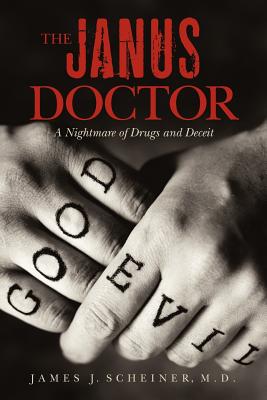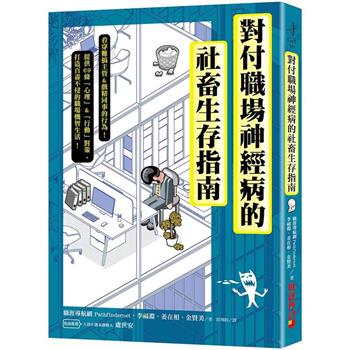On December 21, 1980, the author, a morally insane, drug-addicted surgeon hit bottom. Guilty of fraudulent research, he finds himself reduced to a terrified non-entity in a barred bedlam oiled by a system bent on destroying the things that once defined human beings. There, he endures the angst of withdrawal and the savage revenge of a fellow con that had once been the target of the doctor's ignorant, racist tongue. Prison, however, turns out to be less a punishment than a restorative sanctuary, for there, guided by a notorious Black Panther and a wise rabbi, he confronts a soul overburdened with contemptible sin. Set free by the truth, he becomes humanized and ultimately rejoices in the glory of redemption and resurrection. Interjected between the prison scenes, the author recounts the intimate details that spawned a personality destined for tragedy. He speaks of a childhood spent in a house of horrors, of an adolescence spent slaving in a sweatbox of a bakery, of an obtuse alcoholic father, and an abusive perfunctory mother who, with every other breath, cleverly brainwashes him into presuming he wants to become a doctor. Ill-prepared for college, he resorts to drugs and duplicity in order to propel himself to the top of his class and through the doors of the Kafkaesque training grounds of medicine. His malignant idiosyncrasies carry over into his private practice, causing it to turn into a chaos, which, thanks to a profession gripped by a conspiracy of silence, is allowed to endure for almost a decade. It was not until he cripples a myriad of lives-including those closest to him-that his scalpel is finally taken out of his trembling hands. In need of money, he offers to perform clinical trials on experimental drugs for several pharmaceutical firms. Having no patients, however, to participate in the trials, he invents them and makes a go of it until the Food and Drug Administration stumbles upon his spurious dealings. Striving to thwart their efforts, the author engages in a series of reckless, self-destructive schemes; one of which-the use of drugs and alcohol to beguile his assistant into taking responsibility for his evil-proves tragic. In an Afterword bearing on the portentous problem of Janus doctors, the author discloses that more or less 15 percent of doctors are, at any one time, addicted to alcohol, to other drugs, or to both. And, probably, because of it, kill more people than motor vehicle accidents, breast cancer, or AIDS. He discusses why the problem remains unchecked, and proffers a prescription for its solution.
| FindBook |
有 1 項符合
The Janus Doctor的圖書 |
 |
The Janus Doctor 作者:Scheiner 出版社:Createspace Independent Publishing Platform 出版日期:2012-06-15 語言:英文 規格:平裝 / 278頁 / 22.9 x 15.2 x 1.5 cm / 普通級 |
| 圖書館借閱 |
| 國家圖書館 | 全國圖書書目資訊網 | 國立公共資訊圖書館 | 電子書服務平台 | MetaCat 跨館整合查詢 |
| 臺北市立圖書館 | 新北市立圖書館 | 基隆市公共圖書館 | 桃園市立圖書館 | 新竹縣公共圖書館 |
| 苗栗縣立圖書館 | 臺中市立圖書館 | 彰化縣公共圖書館 | 南投縣文化局 | 雲林縣公共圖書館 |
| 嘉義縣圖書館 | 臺南市立圖書館 | 高雄市立圖書館 | 屏東縣公共圖書館 | 宜蘭縣公共圖書館 |
| 花蓮縣文化局 | 臺東縣文化處 |
|
|
內容簡介
作者簡介
James J. Scheiner, M.D. is by no means your conventional practitioner of medicine. An orthopedic surgeon for over 30 years, he graduated with honors and a Phi Beta Kappa key from the University of Cincinnati’s College of Arts and Sciences and with honors from its College of Medicine. As a result of his academic achievement, he was felt by many to be destined for greatness. Early on, however, he became a drug addict, and instead of a medical messiah, became a medical pariah--a Janus Doctor. Like most addicted physicians he was able to practice surreptitiously for many years, lecturing and performing surgery at various prestigious medical institutions that included Johns Hopkins, Georgetown, and the Texas Medical Center. Ultimately, however, he ended up practicing in shoddy facilities and performing spurious research. His addiction also led him to a federal penitentiary where he was surprised to find himself the only physician among thousands of inmates, most serving time for drug-related crimes. It was quite obvious that, unlike drug offenders in the general population, addicted physicians were rarely punished. In an attempt to mitigate the guilt he harbored over his ruined life, and the hurt he had imposed on so many, Dr. Scheiner, upon his release from prison, devoted himself to an intense investigation into the problem of the physician addict. He uncovered a great deal of startling facts and figures regarding the use of alcohol and drugs by physicians and why it continues--unabated and unreported. Unfortunately, much of this information has never reached the general public who, even today, remain ignorant of the pervasiveness of the problem. Dr. Scheiner is deeply concerned over the deception as well as the real and potential maltreatment of the sick and injured by Janus doctors. He is confident, however, that this problem can be corrected. The initial step, of course, is to inform the general public and healthcare professionals of its ubiquitousness and of its jeopardy. And who better to give an account of an addicted physician than one who has lived it, has been ruined by it, has paid for it, and is sorry for it, but above all, desperate to prevent others from following in his bloodied footsteps.
|











